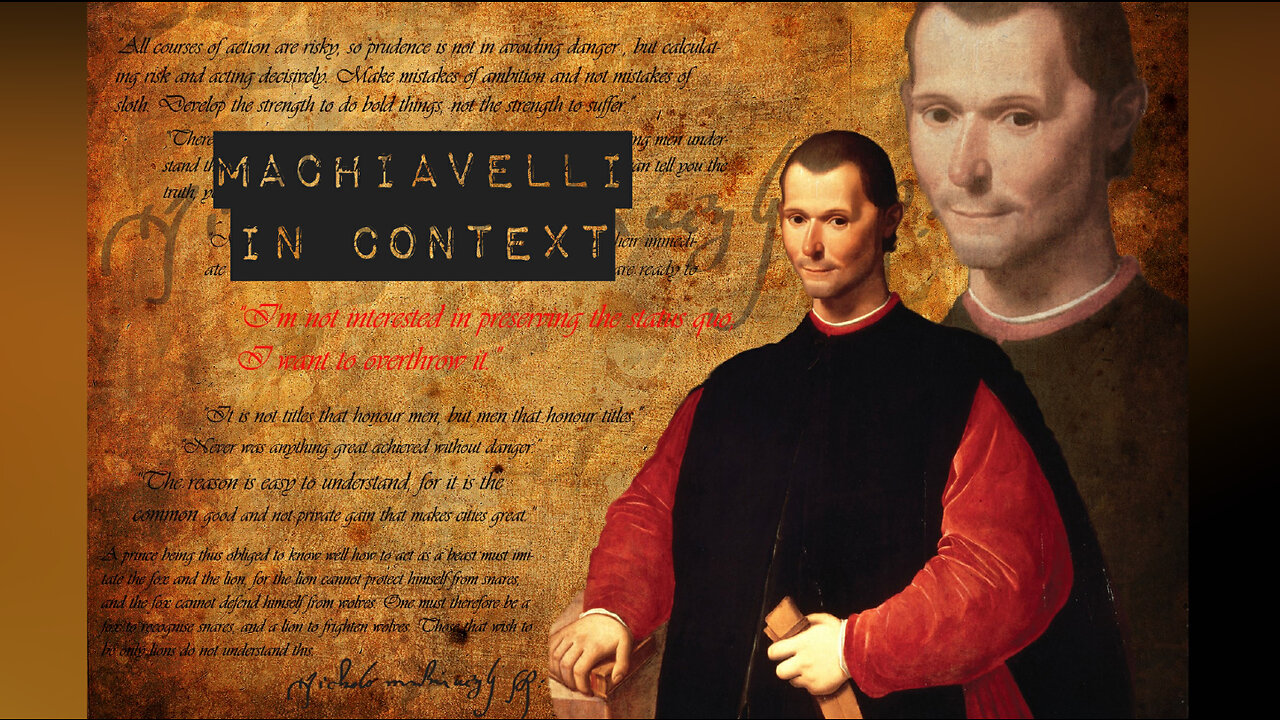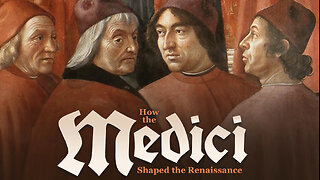Premium Only Content

Machiavelli in Context | Discourses: Lessons from Rome (Lecture 15)
Lecture 15: Machiavelli examines several questions relating to the governance and reform of a republic. If someone in power makes an error, should he be punished for his mistake? Machiavelli fears that punishment discourages leaders from using their minds in creative ways. How should a leader deal with problems?
In his first discourse, Machiavelli also attempts to deal with severe crises that occur in republics. He praises the Roman office of dictator because it allowed someone to take charge in exceptional circumstances, but only for a very short while. On the other hand, the attempted agrarian reforms of the Gracchi (two brothers who lived in the 2nd century B.C.) were a disaster because they tried to reconstitute a distant past, causing the bitterness of factions that led to the destruction of the republic.
Machiavelli then makes a case for the freedom that comes with a knowledge of the past. He states something quite similar to what George Santayana wrote in the 20th century: “Those who cannot remember the past are condemned to repeat it.”
Recommended Readings:
Machiavelli, Discourses on Livy, translated by Julia Bondanella and Peter Bondanella, Discourse I, chapters 34–54.
-
 30:08
30:08
The Great Courses
21 days agoHow the Medici Shaped the Renaissance | The Godfather: Cosimo de' Medici (Lecture 3)
220 -
 2:25:43
2:25:43
Darkhorse Podcast
14 hours agoLooking Back and Looking Forward: The 258 Evolutionary Lens with Bret Weinstein and Heather Heying
156K209 -
 5:50:16
5:50:16
Pepkilla
13 hours agoRanked Warzone ~ Are we getting to platinum today or waaa
105K7 -
 9:15:09
9:15:09
BrancoFXDC
11 hours ago $8.93 earnedHAPPY NEW YEARS - Road to Platinum - Ranked Warzone
92.7K4 -
 5:53
5:53
SLS - Street League Skateboarding
5 days agoBraden Hoban’s San Diego Roots & Hometown Win | Kona Big Wave “Beyond The Ride” Part 2
99.9K13 -
 6:03:57
6:03:57
TheBedBug
16 hours ago🔴 LIVE: EPIC CROSSOVER - PATH OF EXILE 2 x MARVEL RIVALS
100K9 -
 1:12:45
1:12:45
The Quartering
14 hours agoTerror In New Orleans, Attacker Unmasked, Tesla BLOWS UP At Trump Tower! Are We Under Attack?
163K261 -
 1:32:08
1:32:08
Robert Gouveia
15 hours agoNew Year TERROR; Trump Speaks at Mar-a-Lago; Speaker Johnson FIGHT
134K112 -
 22:21
22:21
Russell Brand
1 day agoVaccines Don't Cause Autism*
204K881 -
 2:05:27
2:05:27
The Dilley Show
15 hours ago $26.74 earnedNew Years Agenda, New Orleans Terror Attack and More! w/Author Brenden Dilley 01/01/2025
119K39